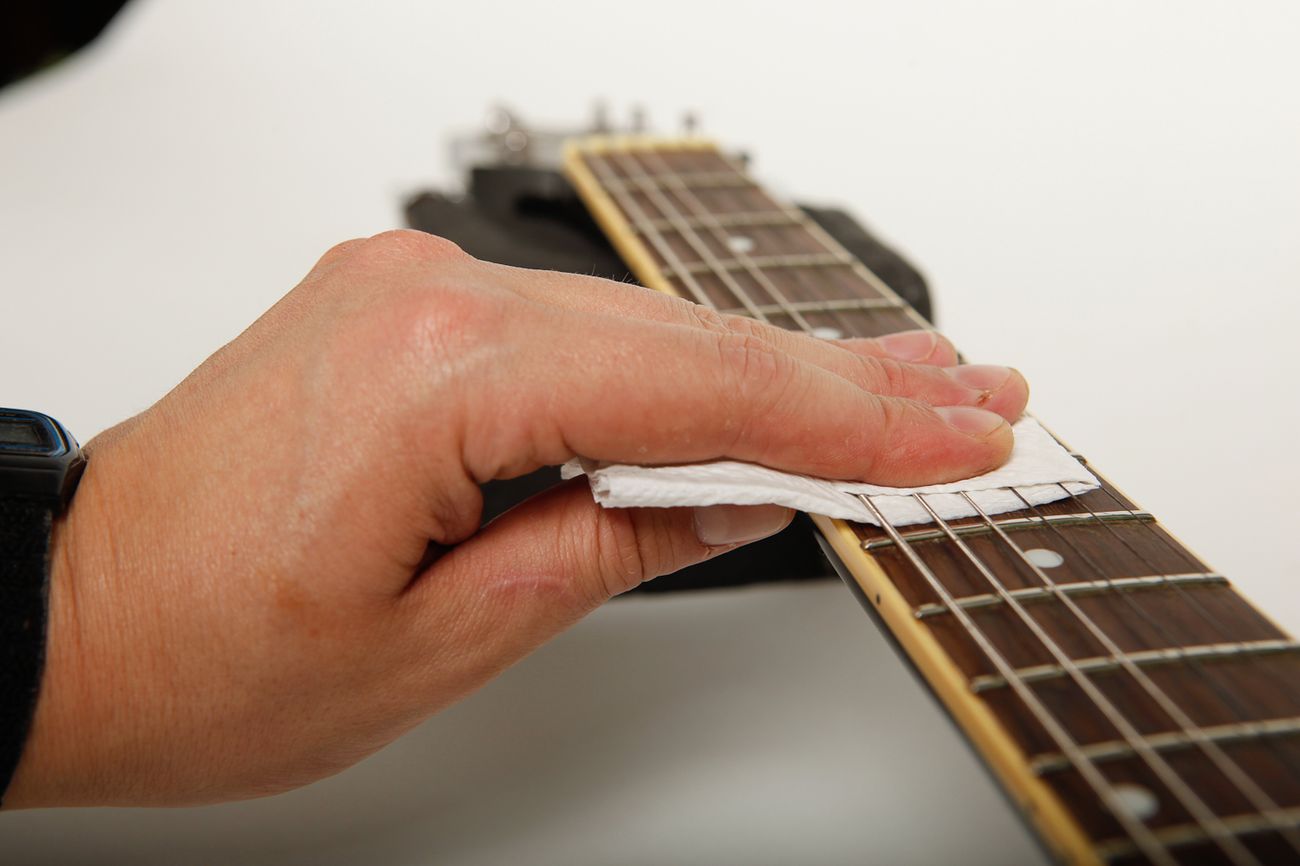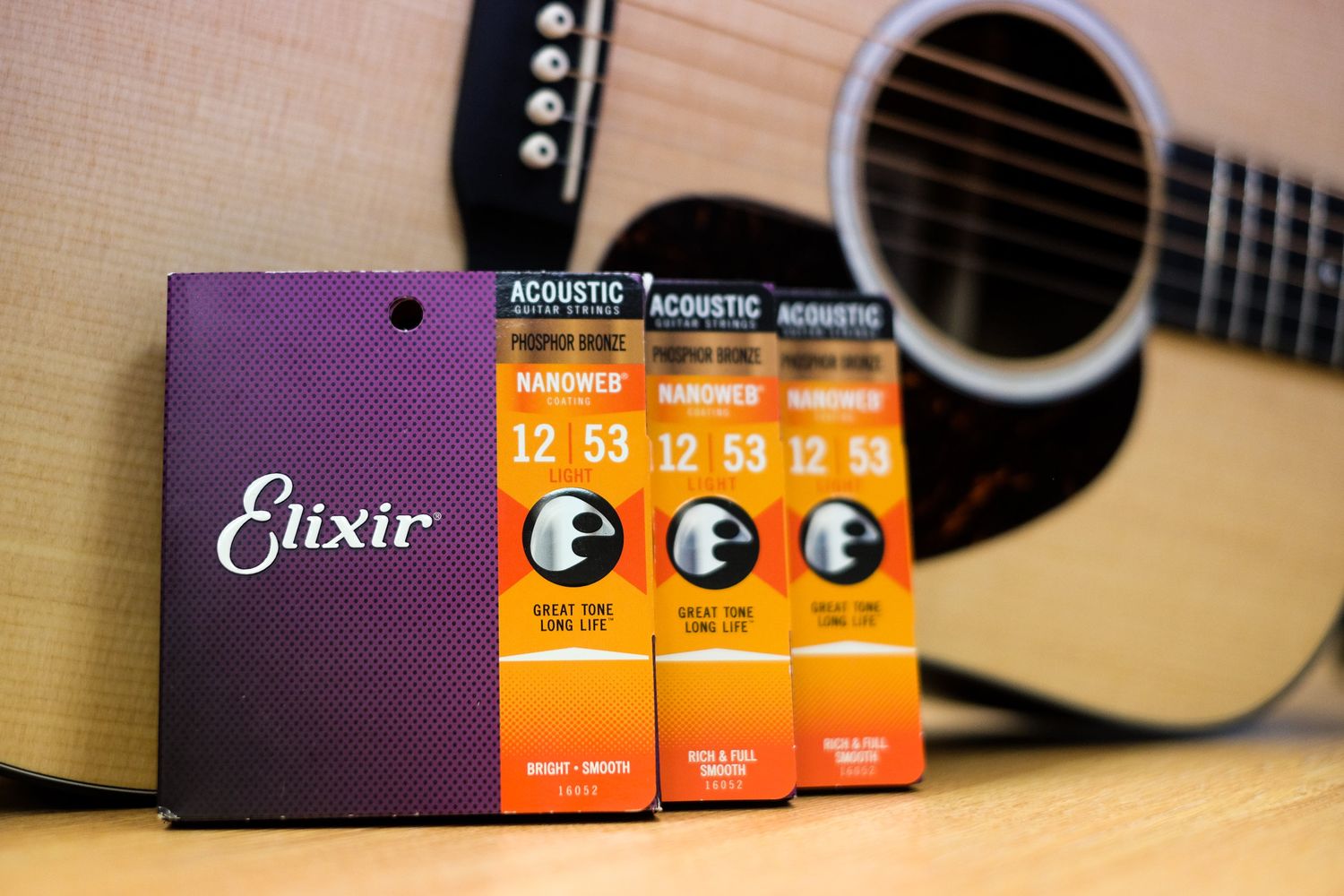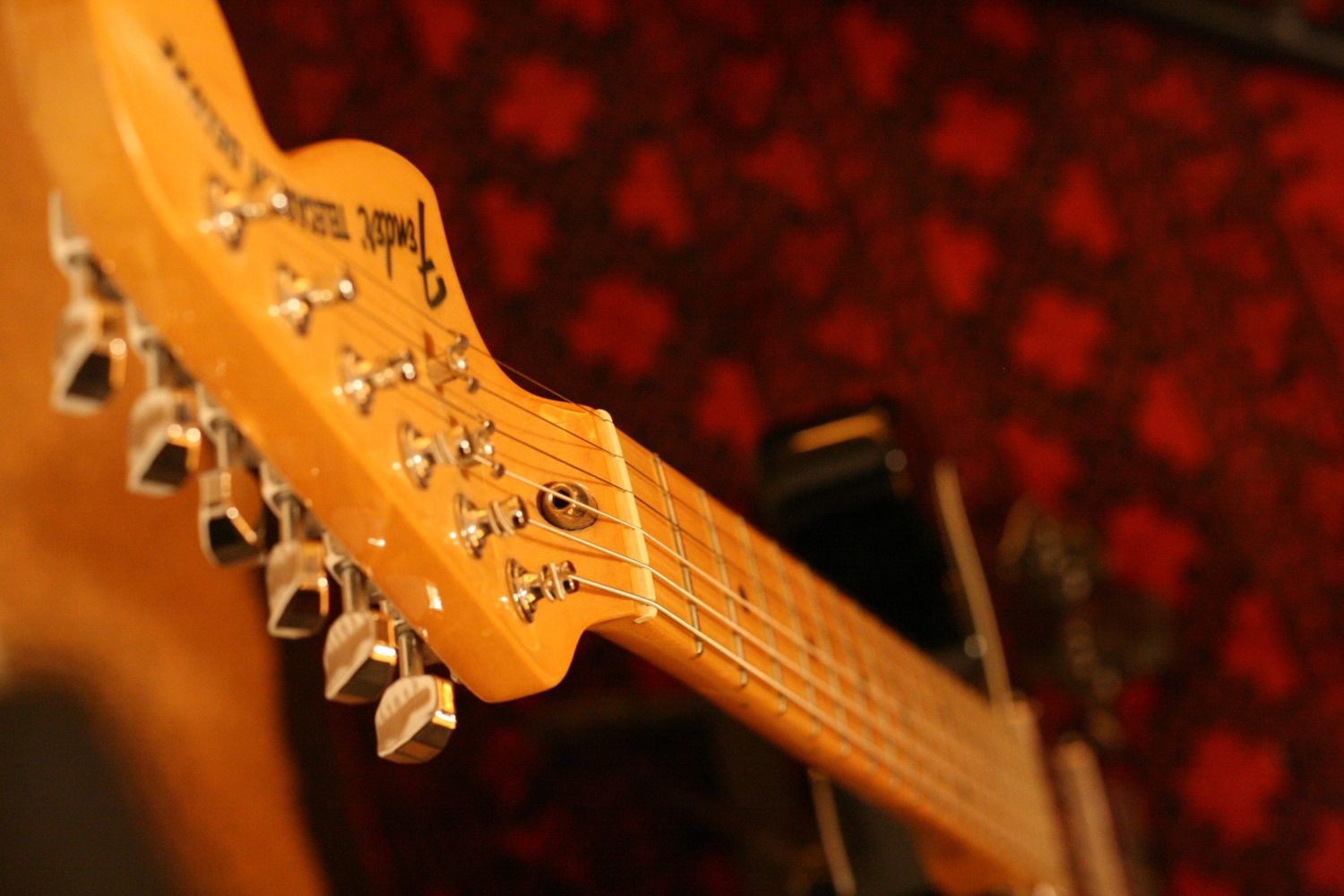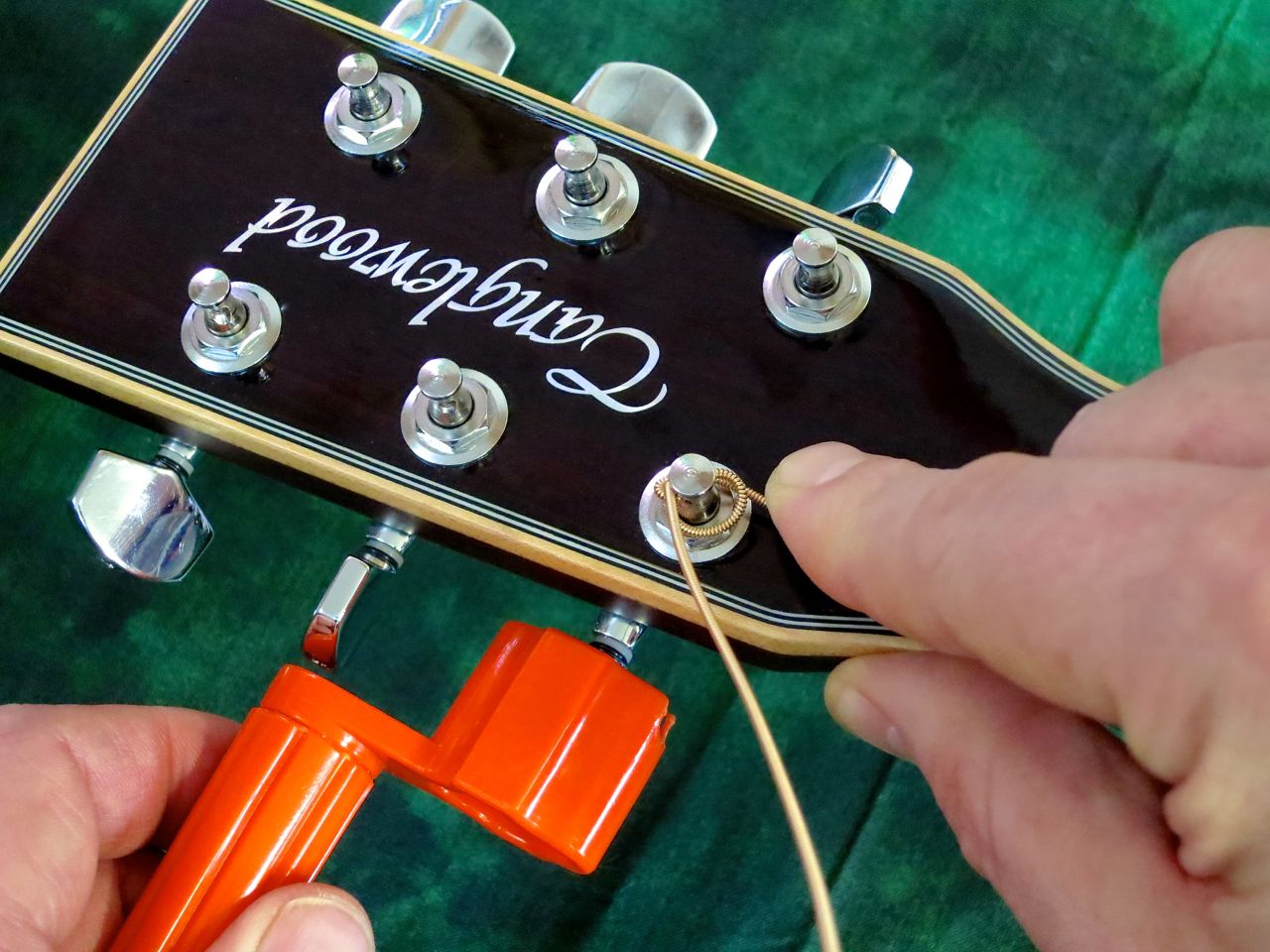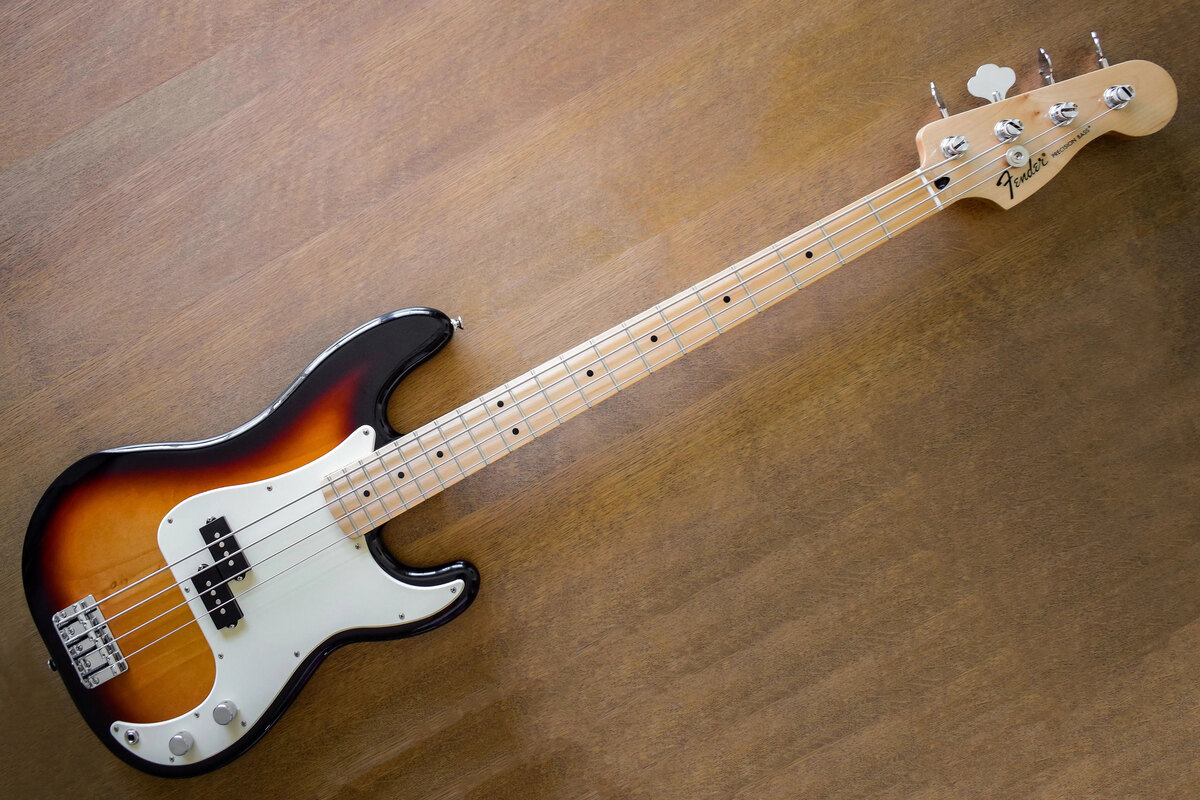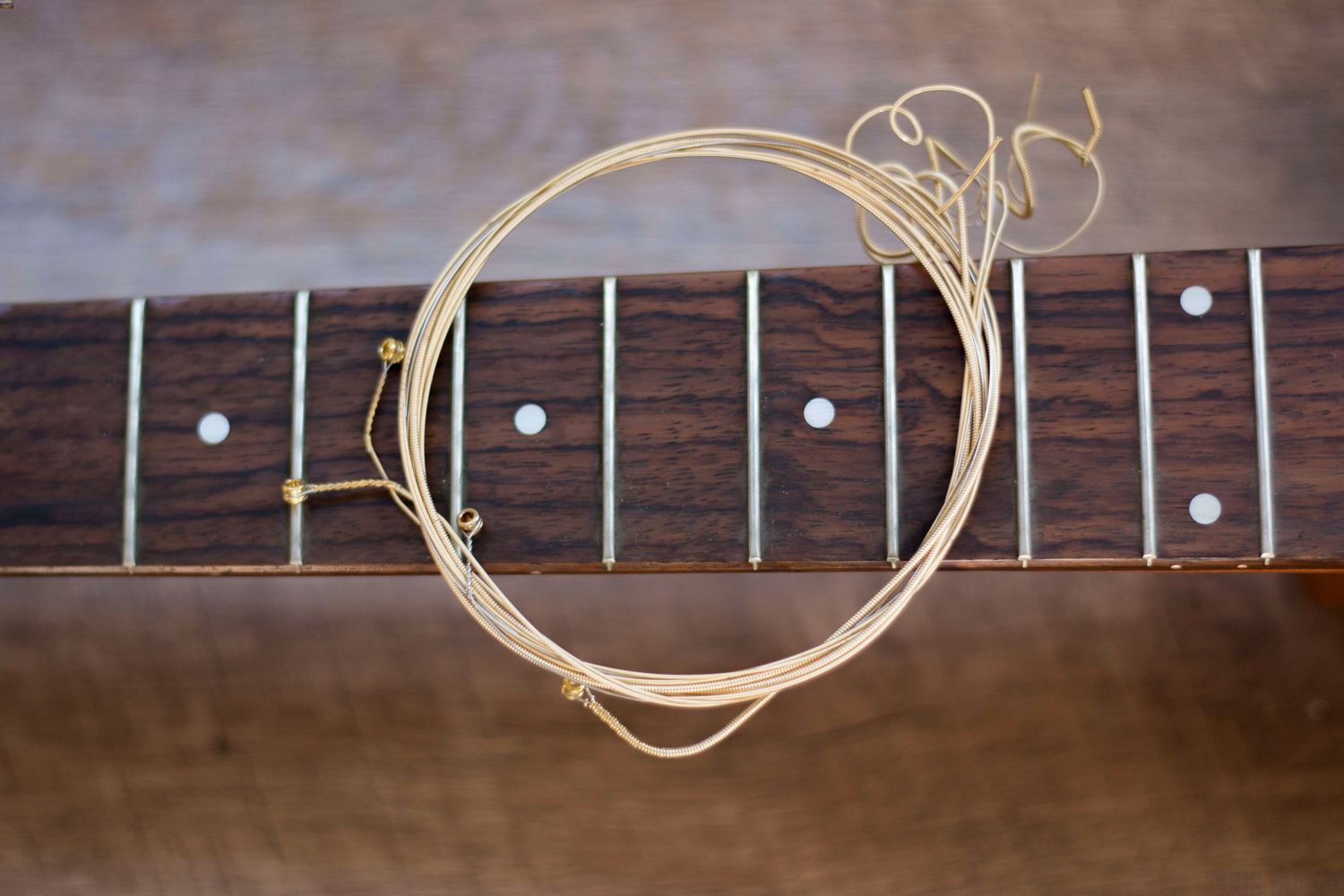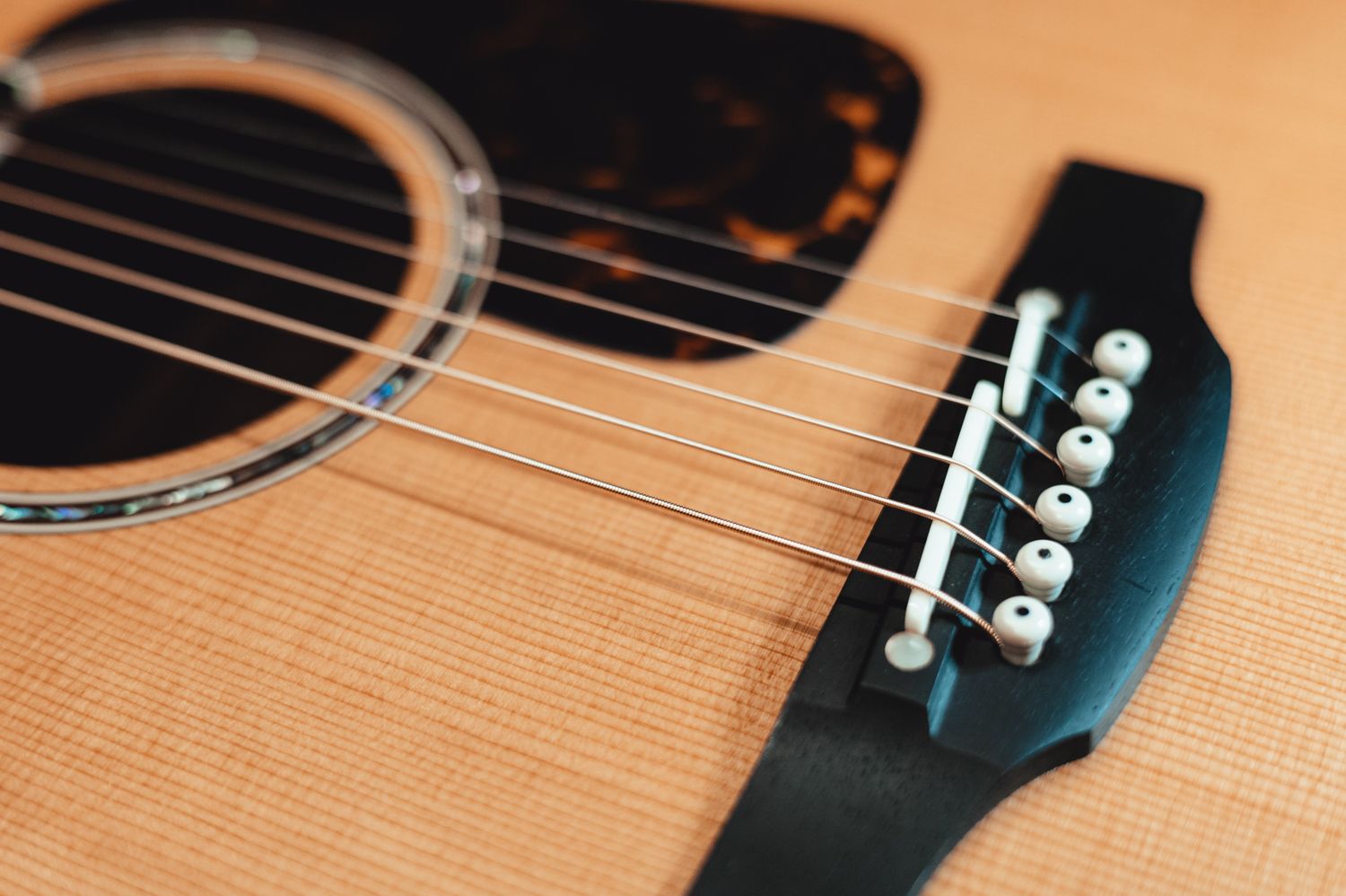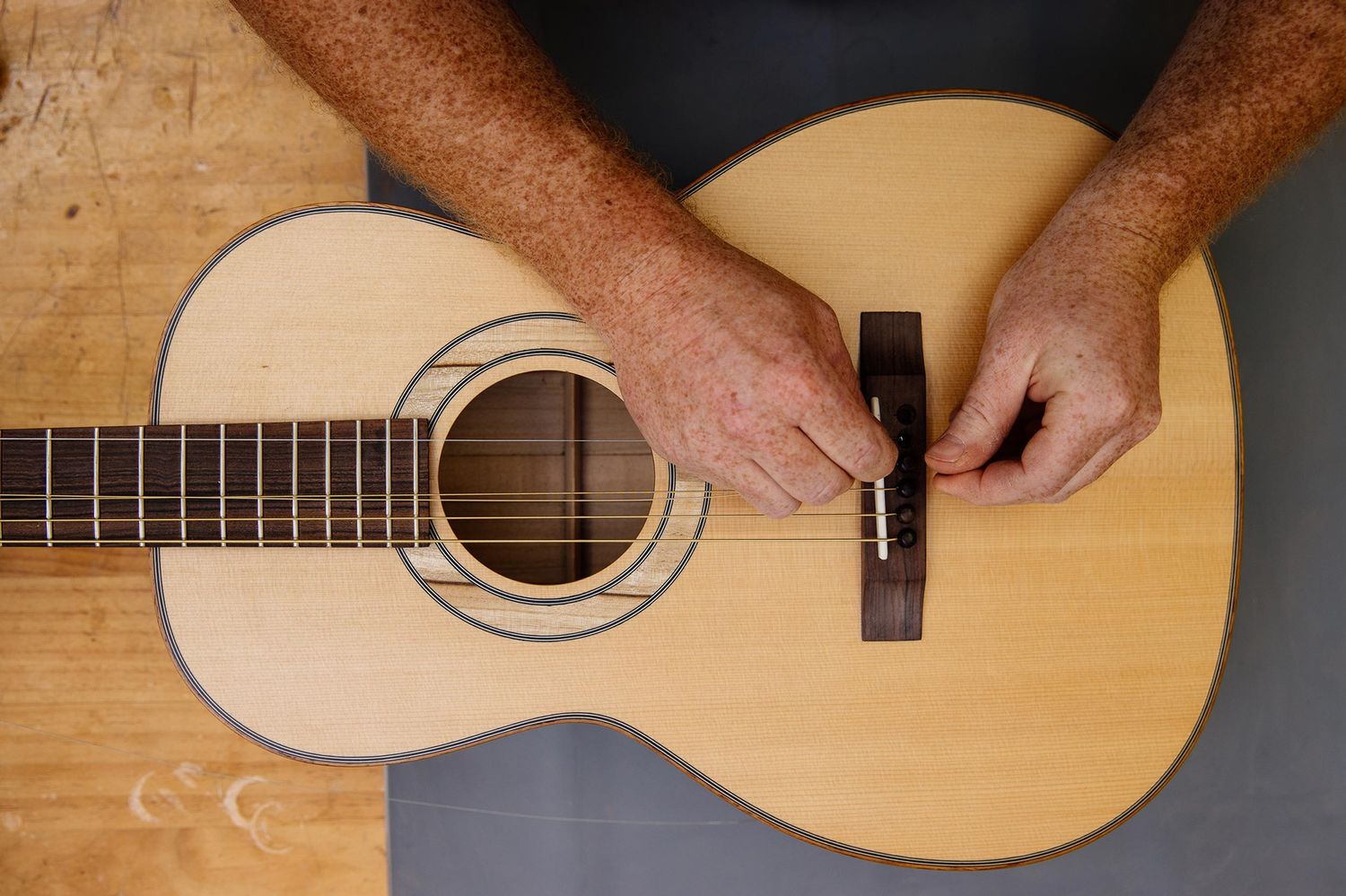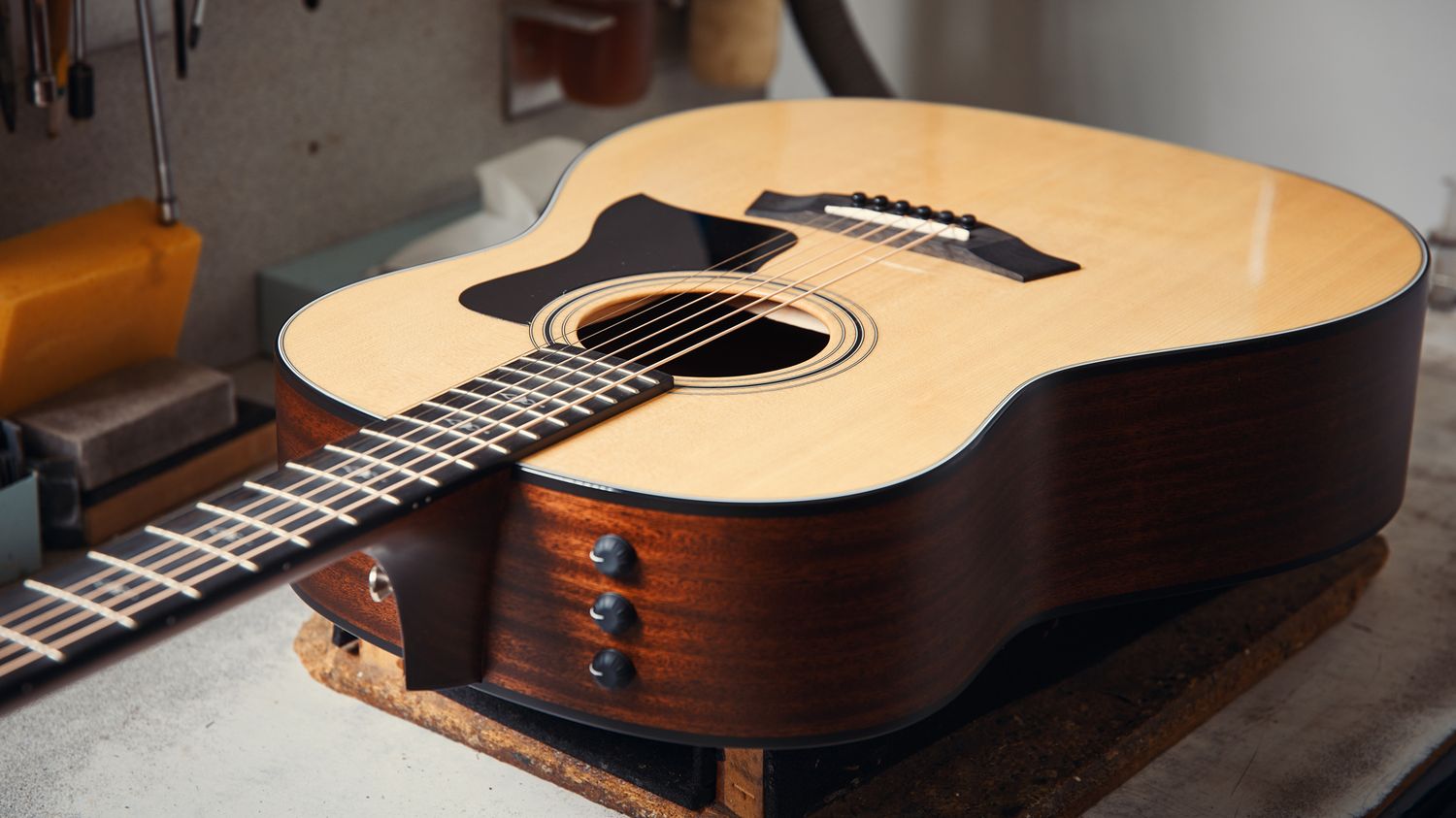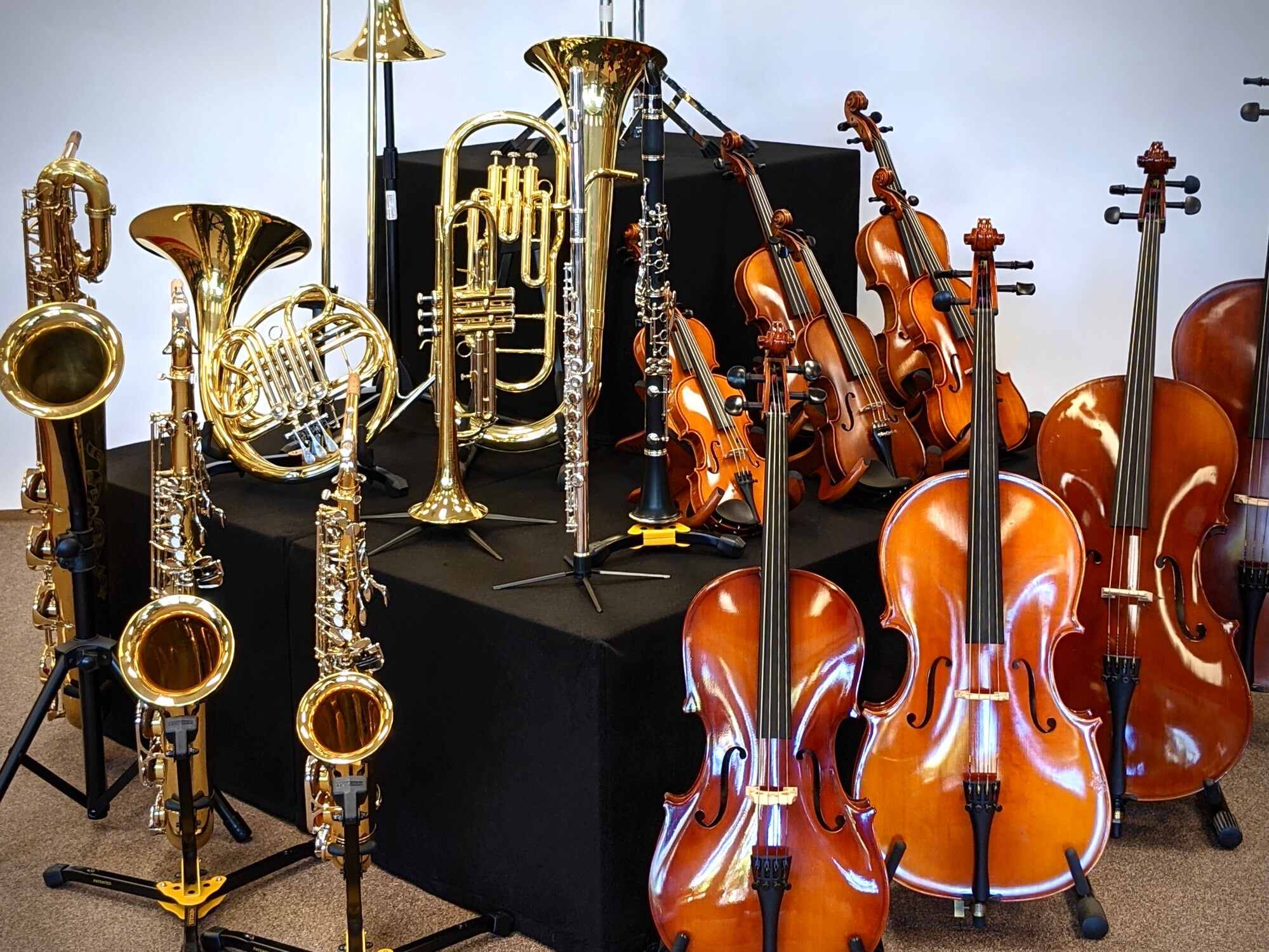Home>Instruments>Bass>What Are The Four Strings On A Bass Guitar
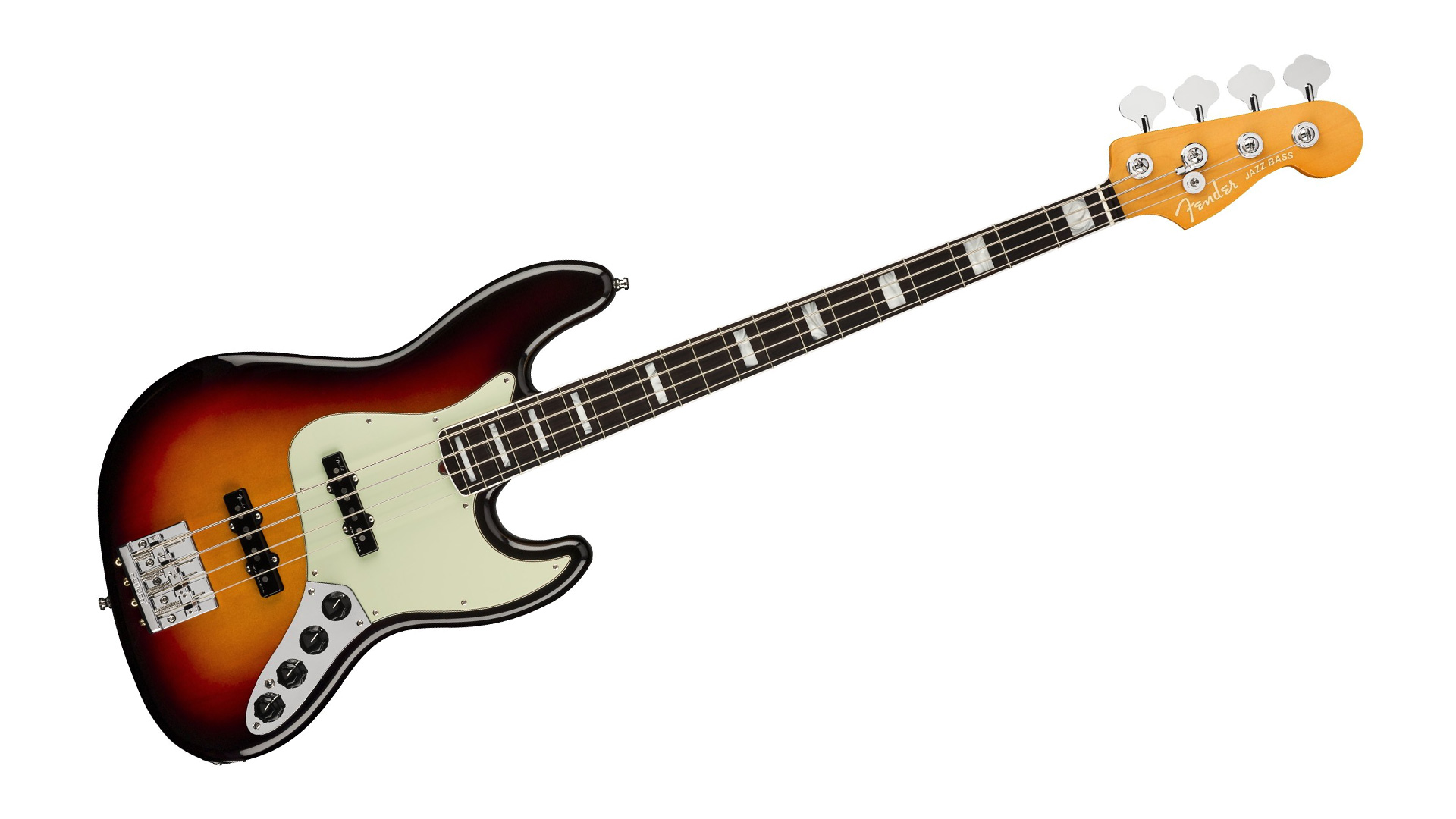

Bass
What Are The Four Strings On A Bass Guitar
Modified: February 15, 2024
Discover the purpose and function of the four strings on a bass guitar. Learn about the essential role that bass plays in creating rhythm and harmony.
(Many of the links in this article redirect to a specific reviewed product. Your purchase of these products through affiliate links helps to generate commission for AudioLover.com, at no extra cost. Learn more)
Table of Contents
Introduction
The bass guitar is a vital instrument in any band or ensemble, providing the deep, low-end foundation that drives the music forward. It plays a crucial role in creating the groove and rhythm of a song. Central to the sound and playability of the bass guitar are the strings. The strings on a bass guitar are responsible for producing the notes and tones that define its unique sound. In this article, we will explore the function of the strings on a bass guitar, the materials used in their construction, the different types available, and important factors to consider when choosing bass guitar strings.
The strings on a bass guitar are not only essential for producing sound but also significantly impact the playability and response of the instrument. Different strings can alter the tone, sustain, and feel of the bass, allowing musicians to achieve a wide range of sounds and styles. Understanding the various aspects of bass guitar strings can help bassists make informed decisions when it comes to selecting the strings that best suit their playing style and musical preferences.
Whether you are a beginner, an intermediate player, or a seasoned professional, having a thorough understanding of bass guitar strings will help you optimize your playing experience and make the most out of your instrument. So, let’s delve into the world of bass guitar strings and explore the fascinating details that make them an integral part of the bass player’s toolkit.
The Function of Strings on a Bass Guitar
The strings on a bass guitar serve a crucial role in producing sound and creating the tonal foundation of the instrument. When plucked or struck, the vibrations of the strings resonate through the body of the bass guitar, creating sound waves that are amplified and projected through an amplifier or speaker system. The vibration of the strings generates the fundamental pitch of the note being played, which forms the backbone of the music.
In addition to producing sound, the strings on a bass guitar also contribute to the overall playability and response of the instrument. They are responsible for transmitting the force applied by the player’s fingers or pick to the body and neck of the bass, allowing for precise control of the notes and dynamics. The tension and thickness of the strings directly affect the feel and response of the bass, influencing factors such as ease of playing, sustain, and the ability to execute techniques such as bending and sliding.
Furthermore, the strings on a bass guitar play a significant role in shaping the instrument’s tone. The material and construction of the strings influence the overall sound produced, determining factors such as brightness, warmth, sustain, and harmonic content. By choosing different types of strings, bassists can tailor the tonal characteristics of their instrument to suit different genres and musical styles. For example, flatwound strings tend to produce a smooth and mellow tone, while roundwound strings offer a brighter and more aggressive sound.
Construction and Materials of Bass Guitar Strings
Bass guitar strings are typically constructed using a core wire and a winding material. The core wire provides the foundation and tensile strength of the string, while the winding material wraps around the core to produce the desired tonal characteristics. The construction and materials used in the strings greatly influence their sound, playability, and durability.
Core Wire: The core wire of bass guitar strings can be either round, hexagonal, or a combination of both. Round core strings have a more flexible feel and produce a warmer tone, while hex core strings offer greater stability and brightness. Strings with a combination core have a balanced blend of flexibility and stability, providing a versatile tone.
Winding Material: There are several types of winding materials used for bass guitar strings, each with its own unique sonic characteristics. The most common options are:
- Nickel-Plated Steel: These strings have a bright and balanced tone, offering a good balance between clarity and warmth. They are favored by many bassists for their versatility and ability to cut through in various musical settings.
- Stainless Steel: Stainless steel strings produce a brighter and more aggressive tone with increased clarity and sustain. They are popular among bassists who desire a punchy and articulate sound.
- Flatwound: Flatwound strings have a smooth and mellow tone, ideal for genres like jazz and blues. They have a flat ribbon-like winding, reducing finger noise and providing a comfortable playing experience.
- Halfwound: Halfwound strings combine elements of both roundwound and flatwound strings. They have a smoother feel compared to roundwound strings but still offer some of the brightness and clarity.
- Tape Wound: Tape wound strings feature a layer of nylon or synthetic material wrapped around the core wire. They produce a warm and vintage tone and are often used in genres like R&B and soul.
It’s worth noting that while the materials and construction of bass guitar strings play a significant role in shaping their sound, the specific characteristics can vary between different manufacturers and brands. Exploring different string options and experimenting with various combinations can help bassists find the perfect match for their playing style and musical preferences.
Common Types of Bass Guitar Strings
When it comes to bass guitar strings, there is a wide array of options available to cater to different playing styles and musical genres. Here are some common types of bass guitar strings:
- Roundwound: Roundwound strings are the most popular and widely used type of bass guitar strings. They have a bright and articulate tone, with a textured surface that creates a slight “buzz” when played. Roundwound strings provide excellent sustain and are suitable for a variety of musical styles, including rock, pop, funk, and metal.
- Flatwound: Flatwound strings offer a smooth and mellow tone with reduced finger noise. They have a flat ribbon-like winding and a smooth surface, providing a comfortable playing experience. The lack of texture on flatwound strings results in a more subdued “buzz” compared to roundwound strings. Flatwound strings are often favored by jazz and blues bassists due to their warm and vintage sound.
- Halfwound: Halfwound strings, also known as groundwound or pressurewound strings, combine elements of both roundwound and flatwound strings. They feature a round core wire with a thin layer of flat ribbon winding. Halfwound strings offer a smoother feel compared to roundwound strings while still delivering some of the brightness and clarity. They are versatile and suitable for various musical genres.
- Nylon Tapewound: Nylon tapewound strings are a variation of flatwound strings where a layer of nylon tape is wrapped around the core wire. They produce a warm and vintage tone reminiscent of the classic Motown sound. Nylon tapewound strings provide a smooth feel and are popular in genres like R&B, soul, and reggae.
It’s important to note that the gauges of bass guitar strings can also vary, representing the thickness of the strings. Lighter gauge strings are generally easier to play and offer more flexibility, while heavier gauge strings produce a fuller and more resonant sound. The choice of gauge depends on personal preference and playing style.
When selecting bass guitar strings, it’s crucial to consider factors such as tone, playability, durability, and musical genre. Experimenting with different types and gauges of strings can help bassists find the perfect match that suits their individual needs and preferences.
Factors to Consider When Choosing Bass Guitar Strings
Choosing the right bass guitar strings is a personal and important decision that can greatly impact your playing experience and overall sound. Here are some key factors to consider when selecting bass guitar strings:
- Tone: The tone you want to achieve is a crucial consideration when choosing bass guitar strings. Different materials and constructions produce varying tonal characteristics. Nickel-plated steel strings offer a balanced tone, stainless steel strings provide brightness and clarity, flatwound strings produce a smooth and mellow tone, and tape wound strings offer a warm vintage sound. Consider the genre and style of music you play and choose strings that complement your desired tone.
- Playability: The playability of bass guitar strings refers to how they feel under your fingers. This includes factors such as tension, flexibility, and smoothness. Some players prefer strings with a looser tension for ease of bending and fast playing, while others prefer a tighter tension for a more solid and controlled feel. Consider your playing style and technique when selecting strings.
- Durability: The durability of bass guitar strings is an important factor, especially if you play frequently or perform live. Strings that last longer can save you time and money in the long run. Stainless steel strings are known for their durability, while coated strings have a protective layer that extends their lifespan.
- String Gauge: The gauge of bass guitar strings refers to their thickness. Lighter gauge strings are easier to play and offer more flexibility, while heavier gauge strings produce a fuller and more resonant sound. Consider your playing style, the desired tone, and the tension you prefer when choosing the appropriate gauge.
- Budget: Consider your budget when selecting bass guitar strings. Prices can vary depending on the brand, material, and construction. Keep in mind that higher-quality strings may have a longer lifespan and provide better sound, but they may come at a higher cost.
Ultimately, the best bass guitar strings for you depend on your personal preference, playing style, and musical genre. It’s worth experimenting with different types of strings to find the perfect combination that suits your needs and helps you achieve your desired tone and playability.
String Maintenance and Replacement
Proper maintenance and regular replacement of bass guitar strings are essential for optimal playability, tone, and longevity. Here are some tips for maintaining and replacing your bass guitar strings:
- Clean and wipe down your strings: After each playing session, it’s important to wipe down your bass guitar strings with a clean cloth to remove dirt, sweat, and residue. This helps prevent the buildup of grime, which can affect the tone and playability of the strings.
- Use string cleaner: Occasionally, you may want to use a specific string cleaner to remove accumulated dirt and oils from the strings. Follow the instructions provided by the manufacturer to ensure safe and effective cleaning.
- Be mindful of humidity and moisture: Excessive humidity and moisture can cause corrosion and premature wear on bass guitar strings. Consider using a dehumidifier or storing your instrument in a controlled environment to protect the strings.
- Replace worn-out strings: Over time, bass guitar strings will lose their brightness, become less responsive, and may develop dead spots or intonation issues. It’s important to regularly replace worn-out strings to maintain optimal tone and playability. The frequency of string replacement depends on factors such as playing frequency, playing style, and the quality of the strings. As a general guideline, it’s recommended to replace strings every few months for regular players.
- Pay attention to intonation and action: If you notice changes in the intonation or action of your bass guitar, it could be a sign that your strings need replacement. Old and worn-out strings may have inconsistent tension, affecting the overall setup and playability of the instrument.
- Properly dispose of old strings: When replacing bass guitar strings, it’s important to dispose of the old strings properly. Many music stores have recycling programs for used strings. Alternatively, you can wrap the old strings around a piece of cardboard and discard them with your regular household waste.
By following these maintenance tips and regularly replacing worn-out strings, you can ensure that your bass guitar stays in optimal playing condition, sounds its best, and provides a satisfying playing experience. If you are unsure about string replacement or maintenance, consulting a professional guitar technician can be beneficial.
Conclusion
Choosing the right strings for your bass guitar is crucial for achieving the desired tone, playability, and overall satisfaction as a player. Understanding the function of strings, the different construction and material options, and the factors to consider when selecting bass guitar strings can help you make informed decisions and enhance your playing experience.
Whether you prefer the bright and articulate sound of roundwound strings, the smooth and mellow tone of flatwound strings, or the versatility of halfwound strings, each type offers unique characteristics that can be tailored to suit your musical style and genre. Additionally, factors such as string gauge, playability, durability, and your budget should be taken into account when making your decision.
Regular maintenance, including cleaning and proper storage, is important for maintaining the longevity and performance of bass guitar strings. Additionally, recognizing when it’s time to replace worn-out strings can ensure that you always have optimal tone, response, and intonation.
Remember, the choice of bass guitar strings is a personal one. It may take some experimentation to find the perfect match for your playing style and musical preferences. By considering the factors discussed in this article and being open to trying different options, you can find the strings that enhance your bass playing and bring your musical ideas to life.
So, take your time, explore different string options, and enjoy the process of finding the perfect strings that will unlock the full potential of your bass guitar.

